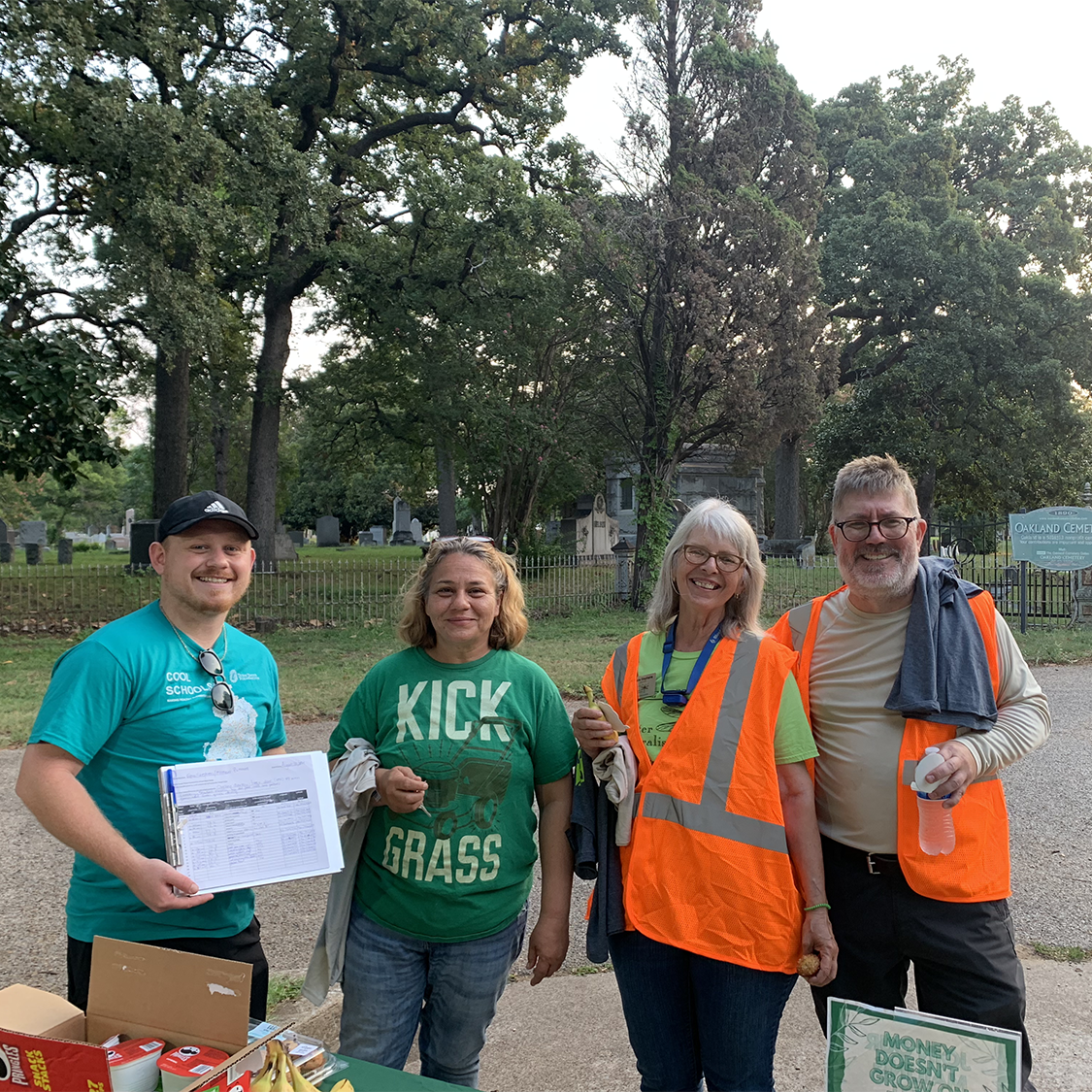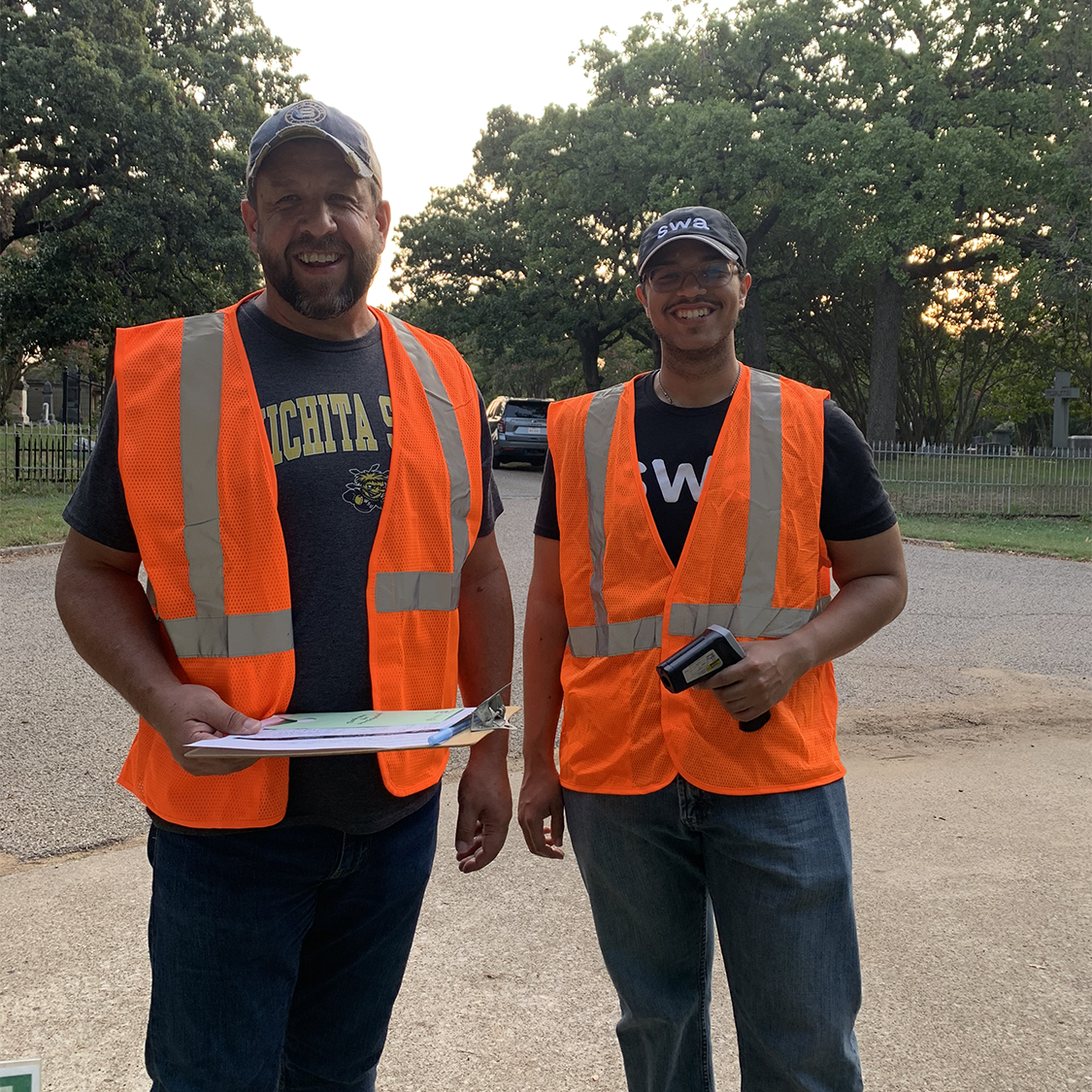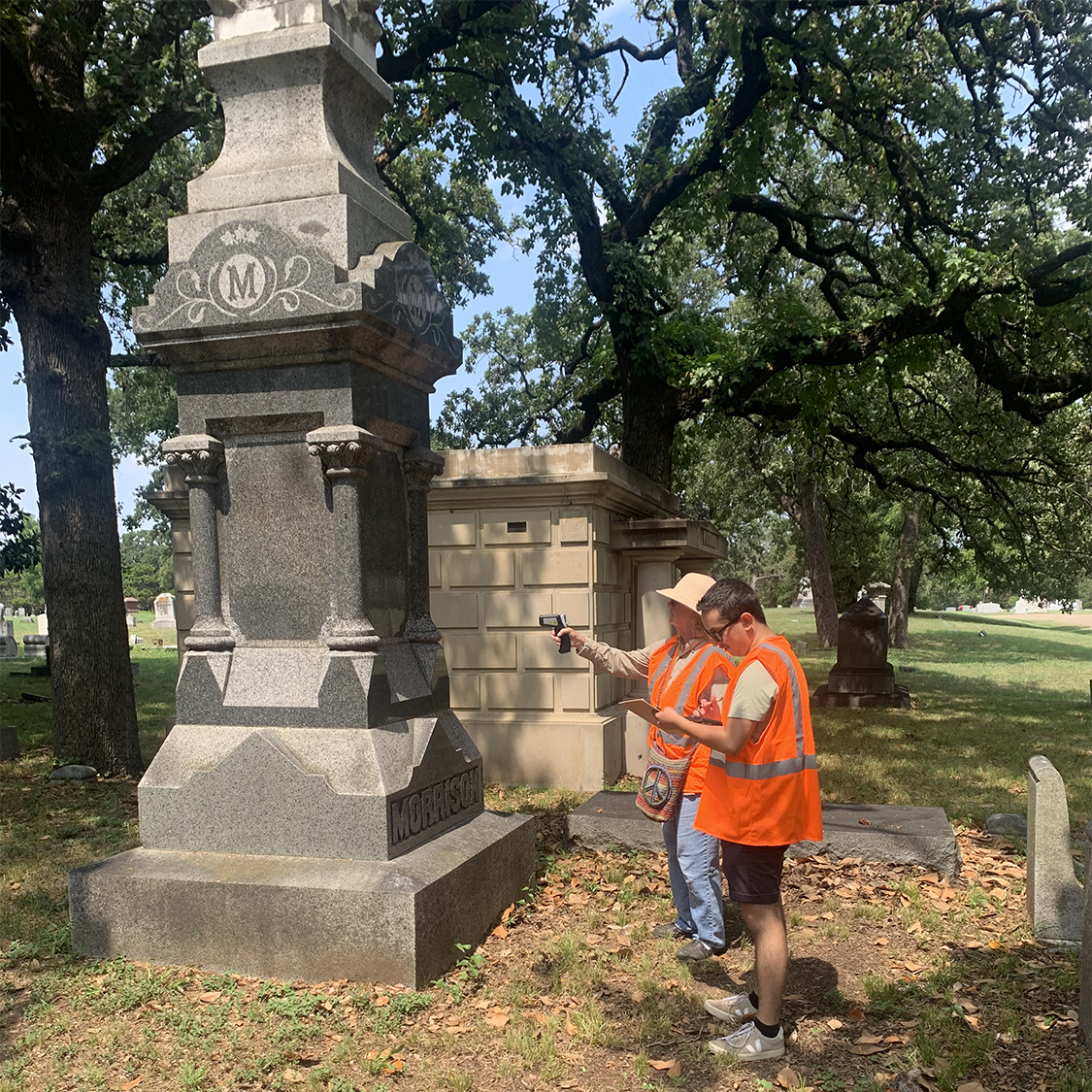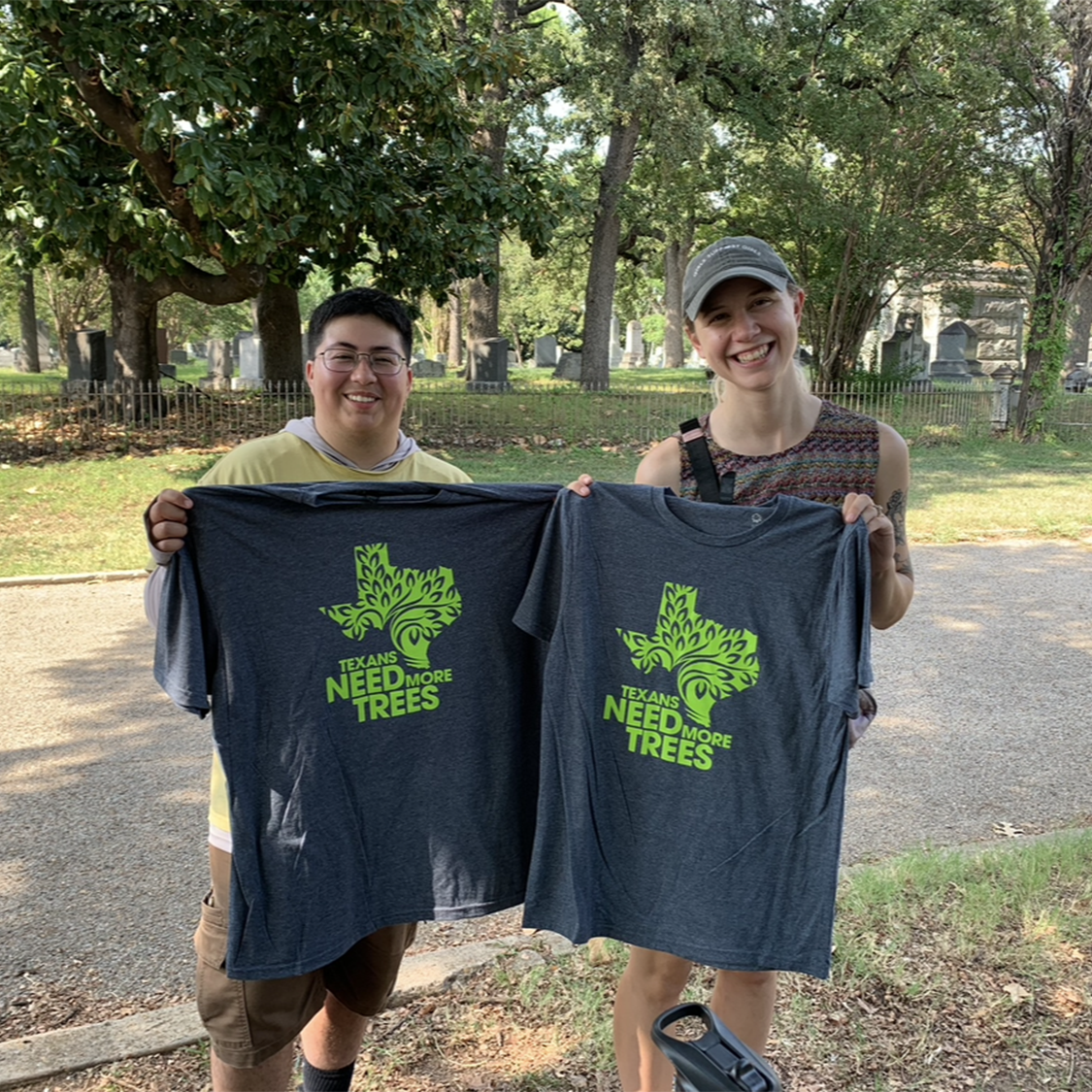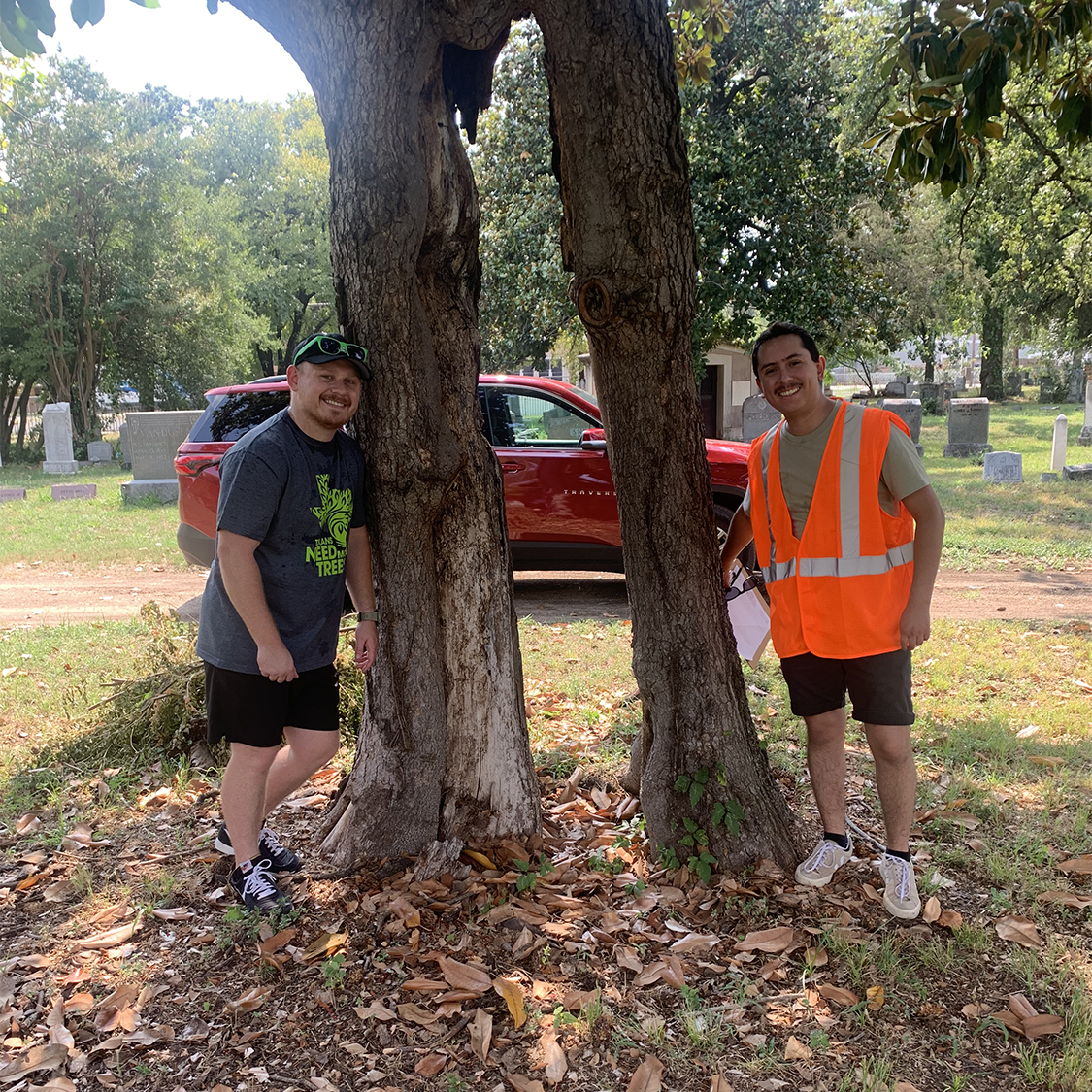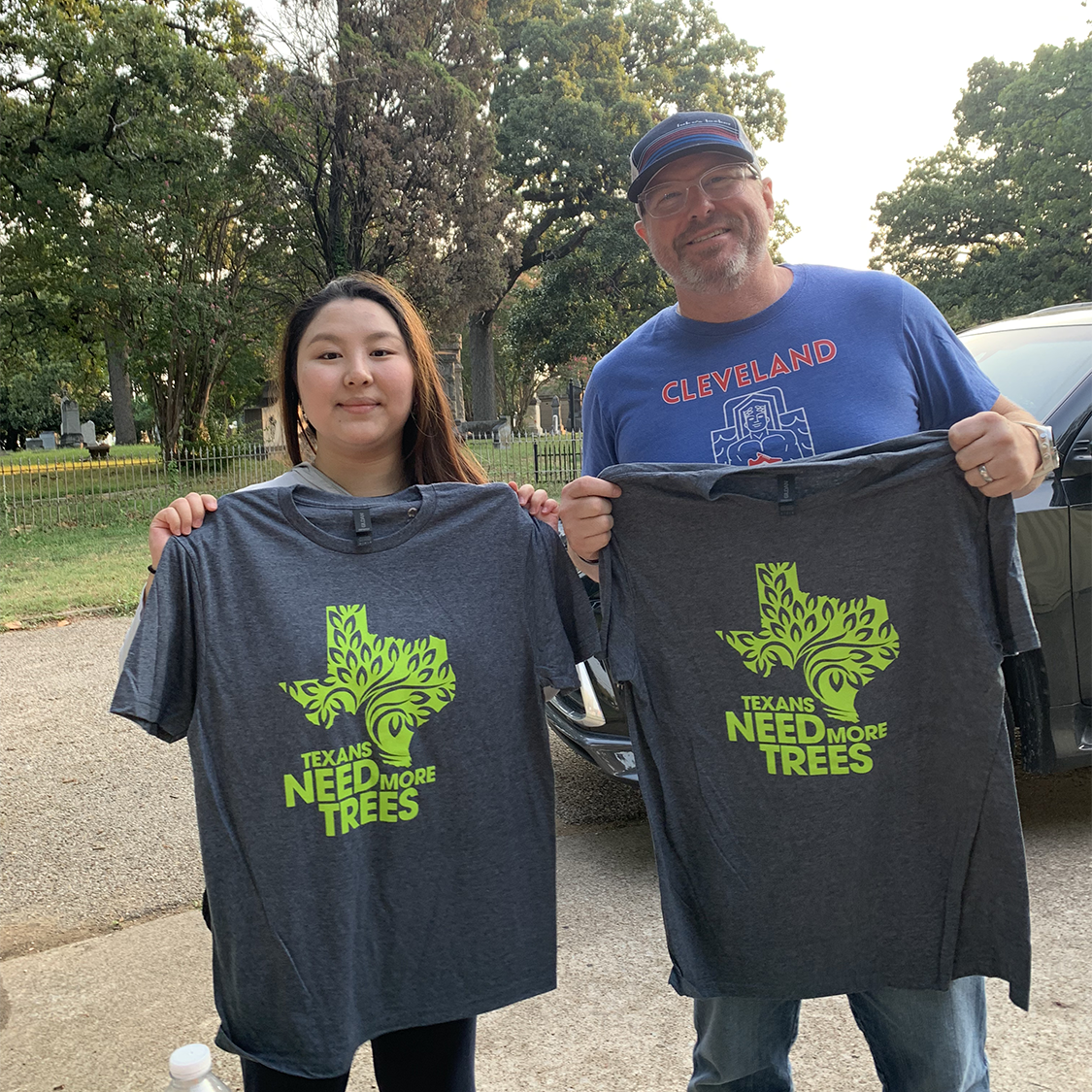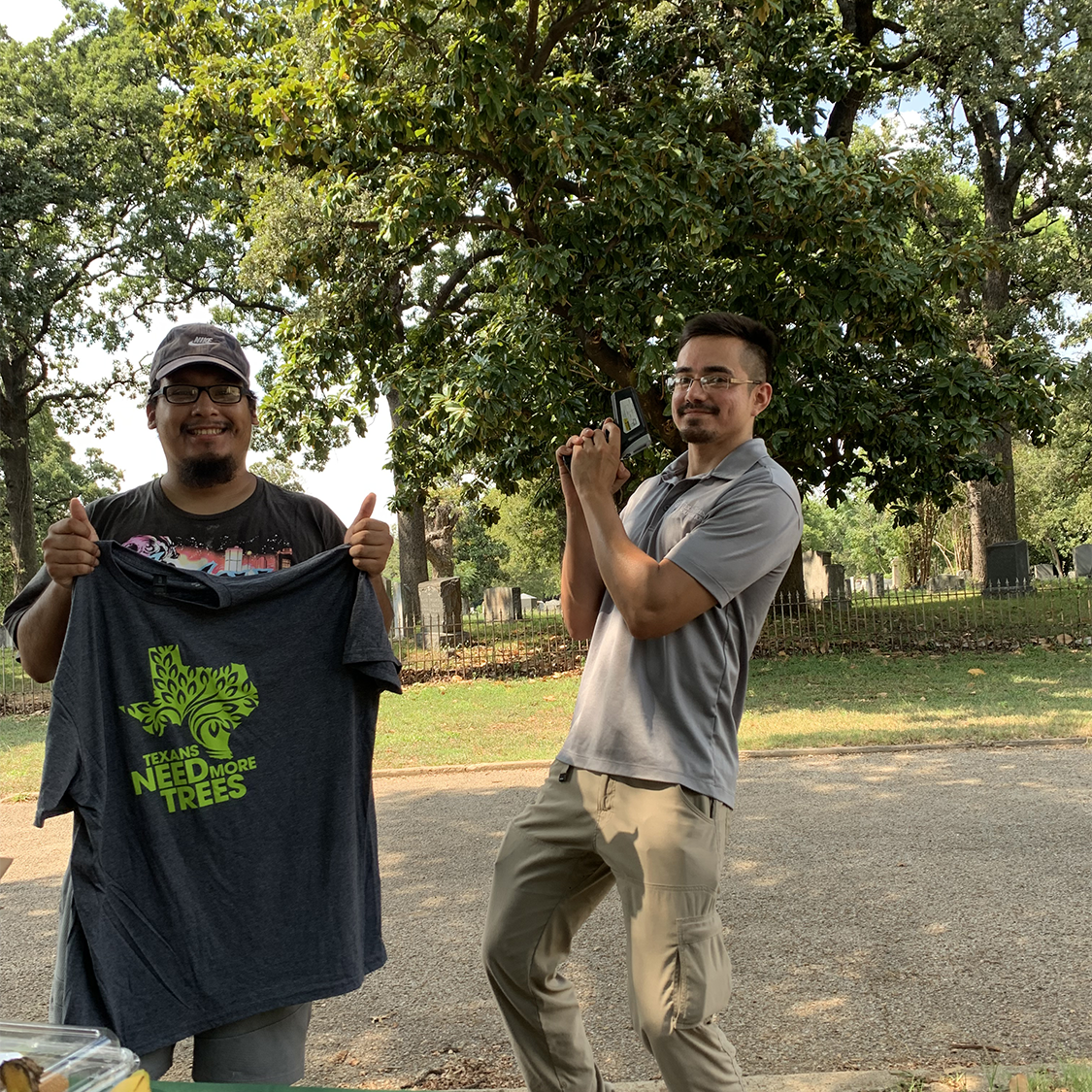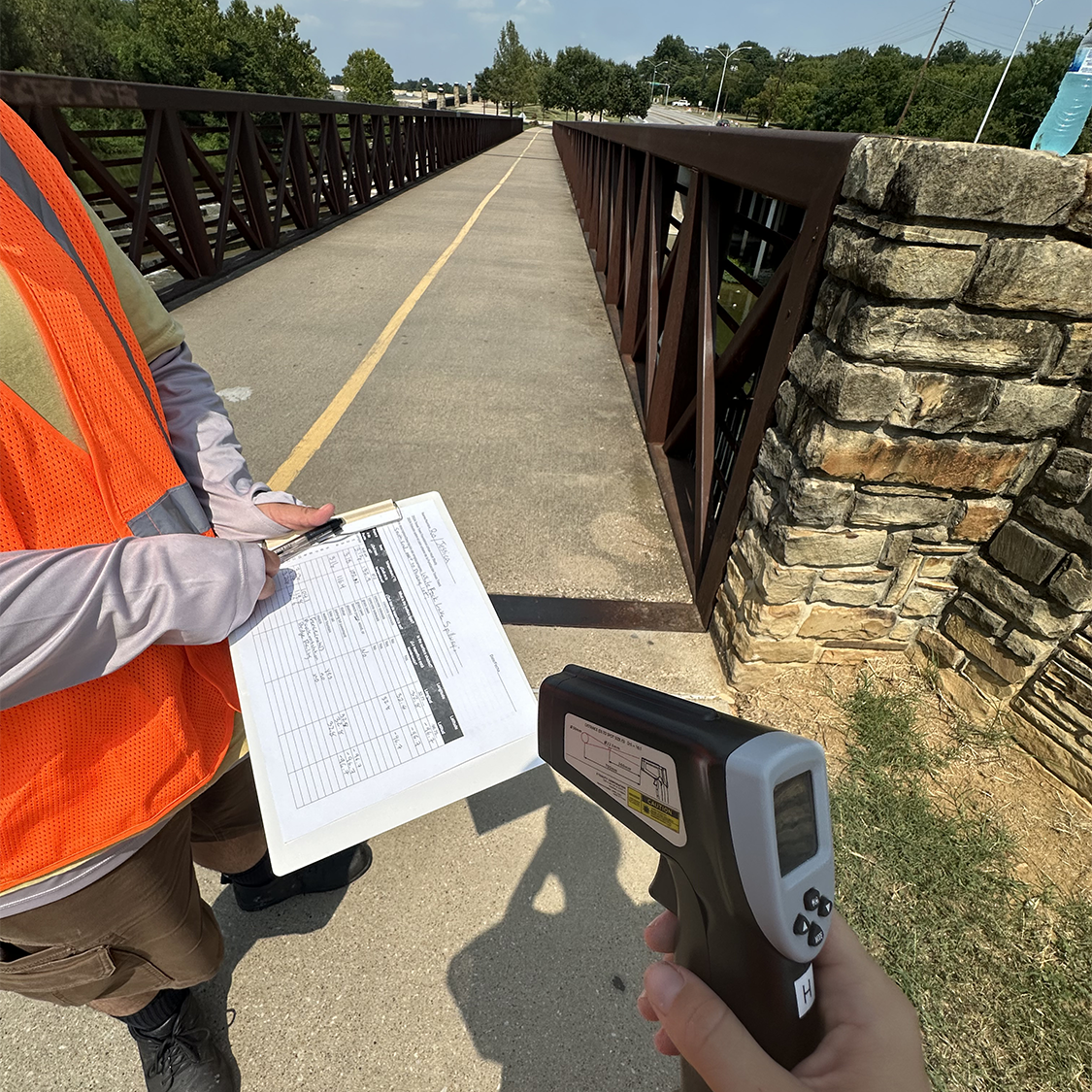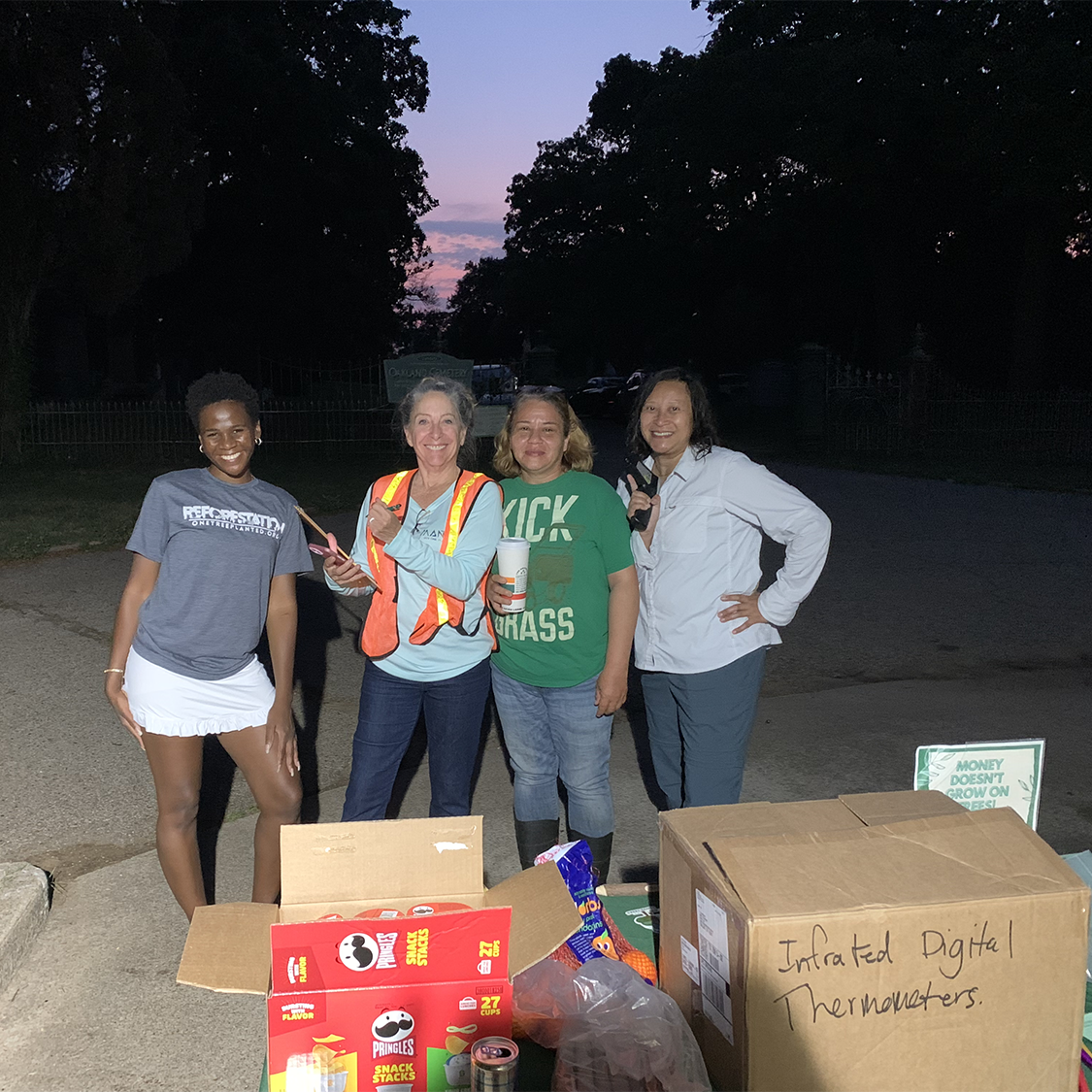We wanted to share a special thank you to the City of Dallas for inviting the Foundation to collaborate in the study! Last month, Texas Trees Foundation was invited by the City of Dallas to collect surface temperature data for the City of Dallas' Urban Heat Island Mapping Study. Our goal was to evaluate temperatures relative to location, surface type, time of day, and outdoor air temperature to conclude canopy-induced shade's ability to provide cooling to urban environments. ☀️🌳🏙️
We selected sites across the city that aligned with areas of interest to our programs, collecting data at:
- Southwestern Medical District
- Fair Park
- Oakland Cemetery
- White Rock Lake
Equipped with heat thermometer guns, notepads, and their Google Maps mobile app, 30 amazing volunteers ventured out to the sites in sessions at 6-7 AM, 3-4 PM, and 7-8 PM to take surface temperature data, totaling 270 measurements throughout the day. 🌡️📋🗺️
We plan to detail our findings in a more official format once we have completed the data analysis, but for now, here's a sneak peek into some of our most fascinating findings!
- Our highest recorded temperature was a wooden bridge in the Southwestern Medical District at 149.3 degrees and our lowest recorded temperature was grass at White Rock Lake at 68.5 degrees.
- The average temperature recorded was 95.29 degrees.
- 27% of the surface types we measured were concrete, our most common surface type.
- Wood, turf, and stone were the hottest surface types.
- The average hardscape temperature was 99.8 degrees, compared to an average softscape temperature of 87.23 degrees.
- Average temperature of hardscape - full sun: 105° 🪨☀️
- Average temperature of softscape - full sun: 88° 🖼️☀️
- Average temperature of hardscape - full shade: 92° 🪨🌳
- Average temperature of softscape - full shade: 86° 🖼️🌳
Thank you so much to Devin Schexnayder, Urban Forestry Coordinator, for bringing this study to life with determination, creativity, and a passion to involve citizen scientists in making a difference in how we understand and mitigate urban heat in our cities. Your hard work made this a successful first study of its nature at Texas Trees!
This event would not have been possible without our dedicated volunteers who embraced involvement in our inaugural study with excitement: A huge thank you to the Denton County Homeschooling Association, SWA Group, and Texas Master Naturalists who each brought out multiple members to volunteer. Also, thank you so much to our partners at Dallas Area Rapid Transit (DART), Friends of Oakland Cemetery, and Constellation of Living Memorials, for their help recruiting volunteers and coordinating event details.
This event was a part of the larger NOAA City of Dallas Urban Heat Island Mapping Campaign. Check out the Capa Strategies and National Integrated Heat Health Information System websites to learn more about the groups involved in leading the campaign and to be on the lookout for the results.

